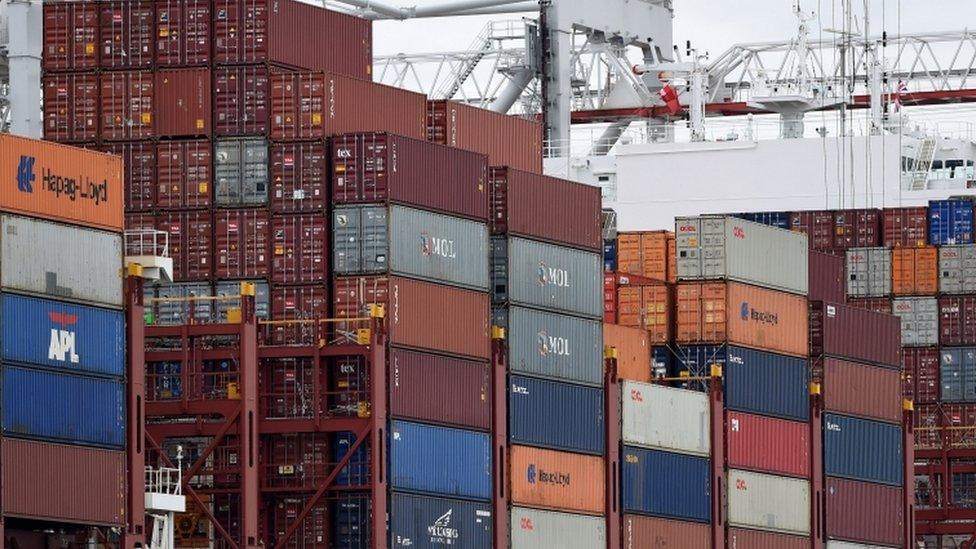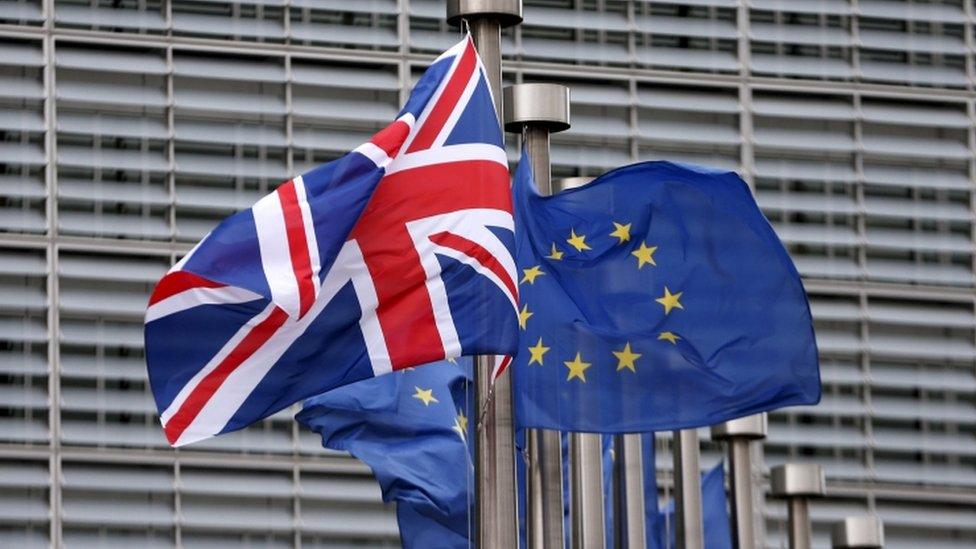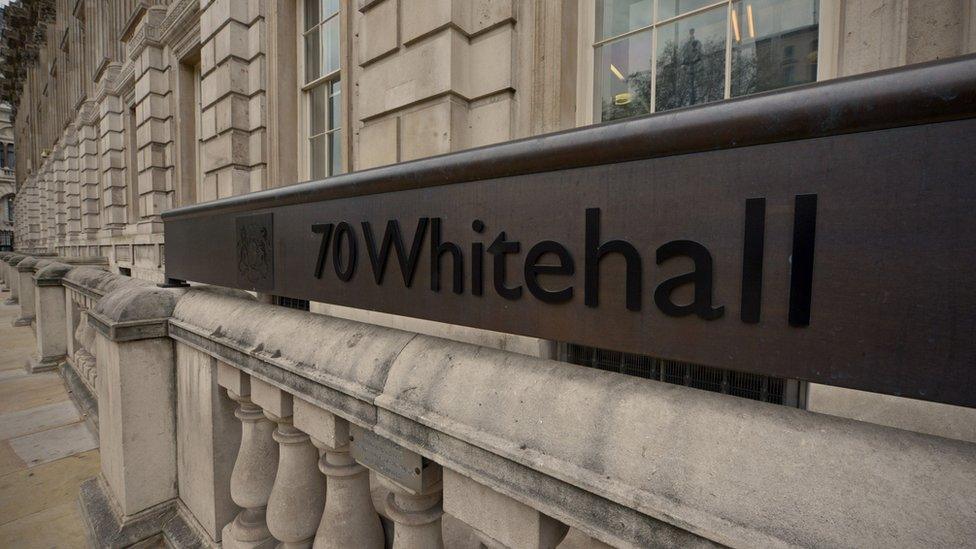Reality Check: What trade benefits could UK keep if it left EU?
- Published

The UK's trading partnerships with other countries are governed by a complex set of agreements, which are all negotiated by European Union. Would the UK be able to carry on doing business globally as it does now if it left the EU?
Lord Lawson, former Conservative chancellor of the exchequer and chairman of the Vote Leave campaign group, thinks so.
Speaking on BBC Radio 4's World at One on Monday he said that if Britain left the EU: "First of all our trade relations with the rest of the world remain totally unchanged because the European Union did not negotiate as the European Union.
"It's not allowed to, it's not a member of the World Trade Organisation, it negotiated on behalf of the member states. So all our arrangements with the rest of the world remain totally unchanged."
On BBC Radio 4's Today programme on Tuesday, Lord Mandelson, a former EU trade commissioner who is campaigning for Britain to remain in the EU, denied this was the case.
So who is right?
'Not straightforward'
There are two types of trade agreement to consider: first, global or multilateral trade agreements done through the World Trade Organisation, the WTO.
In relation to membership of the WTO, Lord Lawson is right. The UK (and the other EU member states) are WTO members in their own right.
The UK is a founder member. The European Commission does negotiate on their behalf in the WTO, on the basis of a negotiating mandate from member states' trade ministers. However, contrary to what Lord Lawson said, the EU is also a member in its own right.
Experts we have consulted think the UK could expect full access to the markets of WTO members on the same terms as other members of the organisation. It is a basic principle of the WTO that trade policy is supposed to be non-discriminatory.


READ MORE: The truth behind claims in the EU debate

However there might be a complicated transition. The British government (which is seeking a Remain vote) put it like this:, external "In the event that we leave the EU, we would need to update the terms of our WTO membership where the commitments taken have previously applied to the EU as a whole.
"This would not be a straightforward process as, if we leave the EU, then we would need all other WTO members to agree how the UK will take on the rights and obligations which we have formerly taken as a part of the EU.
"This would mean negotiating and agreeing updated UK schedules of commitments with all 161 WTO members.
"And until our schedule of commitments was updated, there could be questions surrounding our rights to access WTO members' markets, and our ability to enforce those rights".
Market access
The transition might be somewhat simpler if the UK were to adopt the EU's tariffs and other policies on access to the UK market.
The EU has another group of trade agreements with countries that provide European exporters with better access to their markets - and better access for them to the EU.
There are such agreements with Korea, Mexico and Canada among others and the really big one is being negotiated with the US (the controversial Transatlantic Trade and Investment Partnership or TTIP).
It is true that these agreements generally list the member states (including the UK) as parties, but all the experts we have contacted say that negotiations will be required if these agreements are to continue providing enhanced market access for the UK business.
It would be open to the other countries to extend their agreements on the same terms to the UK. It would be a matter of their judgement of their own interests and negotiation with the UK. Britain is a large market, though not as large as the EU, so there is a clear incentive for these countries to negotiate.
- Published29 February 2016

- Published29 February 2016
